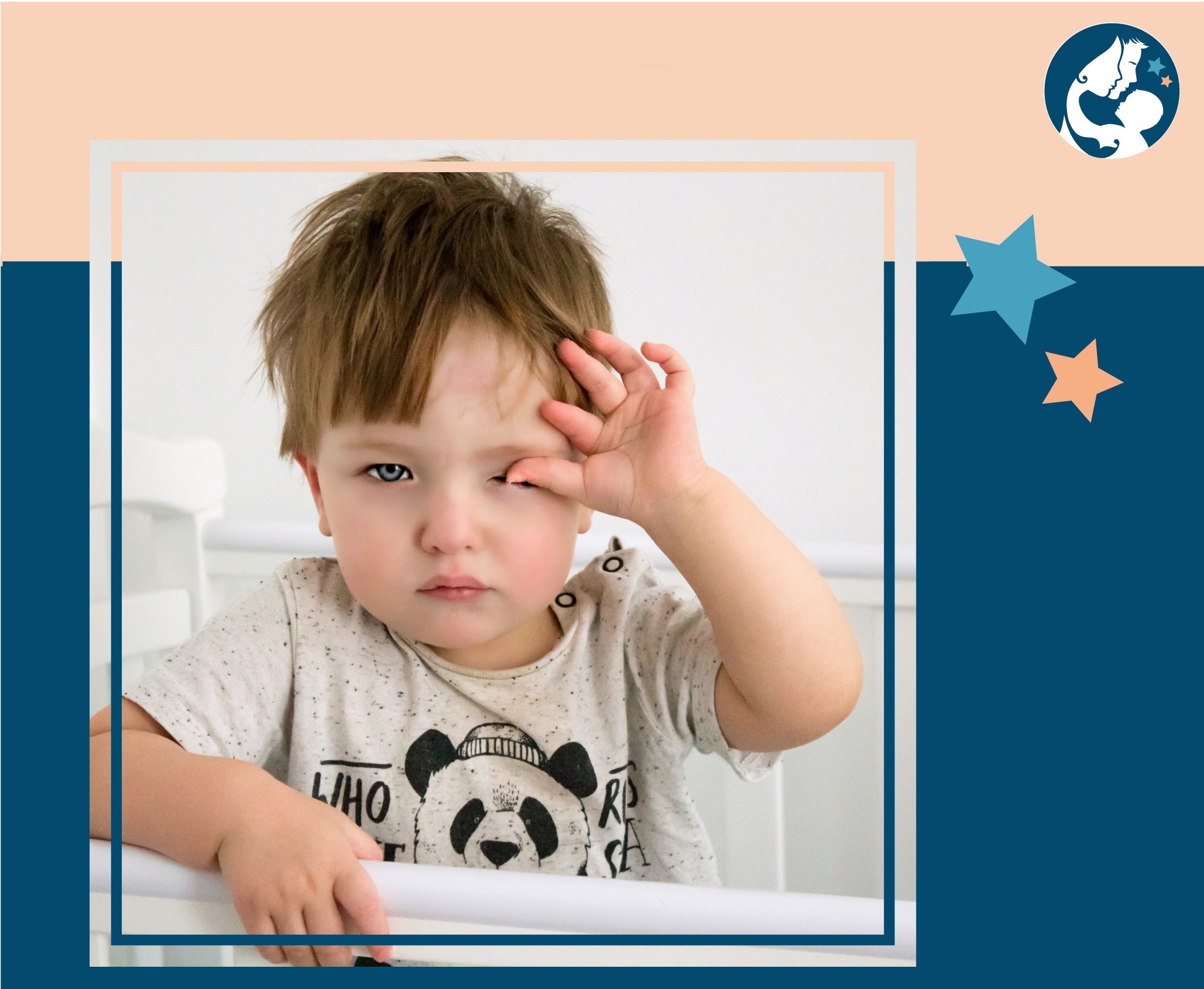This is undoubtedly one of the most asked questions by parents. Will it be a developmental milestone? A regression? Is the baby sleeping too much during the day or not getting enough sleep? Maybe they’re just hungry, or perhaps they’re hot or cold.
The trust is:
All these alternatives, alone or in combination, can be the reason for awakening.
This means, and you probably already know, that at the beginning, the baby’s sleep is unregulated and unstable as their bodies and brains are going through expressive changes very quickly. When they have a problem under control, a new developmental milestone emerges to take its place.
Some factors you can control. If the baby is hot, you can adjust the air conditioner’s temperature or put a fan in the room. If teething, a piece of chilled (not frozen) cucumber or teether can often, at least temporarily, solve the problem.
But these solutions presented are simple. Most people go through a difficult time with their babies’ sleep for problems that aren’t that simple and don’t have obvious answers.
Visualize this scenario: an 18-month-old baby, during the day, gets lots of fresh air and sunlight and takes long, restful naps, but when it’s time for nighttime sleep, she’s suddenly full of energy and wants to play. Hearing that it’s time for bed, he gets upset; thus, bedtime becomes a battle. When she finally manages to sleep, she has multiple awakenings at night and never sleeps after 5:30 in the morning.

After all, what’s going on? Why doesn’t my baby sleep well at night? Is she sleeping a lot during the day?
That would be a reasonable assumption. Indeed, if we adults took a 3-hour nap in the afternoon, there’s a good chance we’d have trouble falling asleep and sleeping that night. But with babies, it’s almost always the opposite. In this scenario, the baby shows you a need for more sleep, not less.
How the sleep system works:
About three hours before we are naturally predisposed to wake up, our body starts secreting a hormone called cortisol. Cortisol is a stimulating hormone, but it is also produced during times of stress to raise the heart rate and stimulate the nervous system; but in the morning, it has the function of helping us start the day. Think of cortisol as mother nature’s caffeine.
And if cortisol is our cup of coffee in the morning, melatonin is our cup of wine at night. As soon as the sun sets, our bodies recognize the onset of the night and start producing this lovely sleep-inducing hormone, which helps us sleep and stay asleep until morning, when the process begins again. Melatonin production starts in the early evening and increases when we are exposed to beautiful, bright sunlight during the day.
But as elaborate as this sleep system is, it is not perfect and is easily confused.
Back to the scenario above, this is what’s happening: Baby takes great naps during the day, which is lovely, of course, and spends a lot of time outdoors, helping your body produce even more melatonin when night comes. But then, why does that burst of energy occur before bed?
When the baby’s body starts producing melatonin, there is a narrow window of time in which the body is waiting for the baby to sleep. If we miss the right moment of this window, the brain instinctively understands and decides that something is not right, as the baby cannot sleep, whatever the reason. And, if the baby is stimulating or frightening, the body adds a cortisol injection to increase its chances of “survival.”
That’s precisely what happens. Your baby’s system starts secreting cortisol, and before you know it, she’ll be more agitated because of it. This usually comes in the form of fun and a lot of energy. In short, the baby has lost the sleep window and will now have difficulty sleeping, and this agitation indicates excessive tiredness and drowsiness.

What does all this have to do with waking up ao 3:00 am?
Let’s assume your baby’s circadian rhythm is programmed to wake up at 6:00 am, so your body starts secreting cortisol three hours before that.
At this point, melatonin production has ceased overnight, and the baby reaches the end of a sleep cycle around 3:00 am. She arrives at this “slightly awake” state, and now with little stimulant and no natural sedative.
This, combined with the inability to fall asleep independently, means the baby is likely to wake up fully and have more time to sleep.
How do I fix this?
While there isn’t a quick fix that adjusts your baby’s hormone production schedule, you can certainly help him by getting him outdoors during the day as much as possible. As mentioned earlier, natural light during the day is mainly responsible for producing melatonin at night.
It will also help if the baby’s room is as dark as possible at night and you start turning off the lights in the house at least an hour before putting him in his crib.
Simulating the sunset will help start melatonin production so that by the time you go to the crib, this production is in full swing.
In addition, avoid any screen (TV, cell phones, or tablets) at least one hour before bed (if possible, more than one hour before bedtime), as these devices emit a blue light that stimulates the production of cortisol at the moment of sleep.
But most of all, the best way to help your baby sleep through the night is to put him on a predictable and consistent sleep schedule and teach him strategies that allow him to fall asleep independently.
The truth is, you will never stop night waking. We all have middle-of-the-night awakenings, whatever our age. As adults, however, when we wake up in the dark, we can calmly assess the situation, realize where we are, observe that it is still night, and go back to sleep, and most of the time, the following day, we don’t even remember waking up that morning.
Therefore, although we cannot prevent the baby from waking up at night, it is possible to safely and effectively help them learn to recognize that they are safe, still feel tired, and can go back to sleep on their own.
If you would like to talk a little more about this subject and have someone to help you and hold your hand while learning healthy habits for your child’s sleep, do not hesitate to talk to me. I would be pleased to help you!
Carla Picolli
carla@nightnight.co.nz

